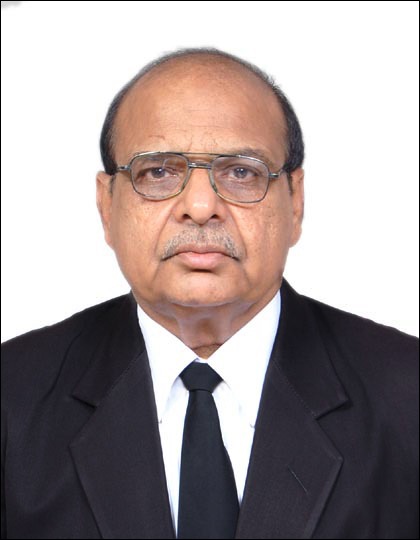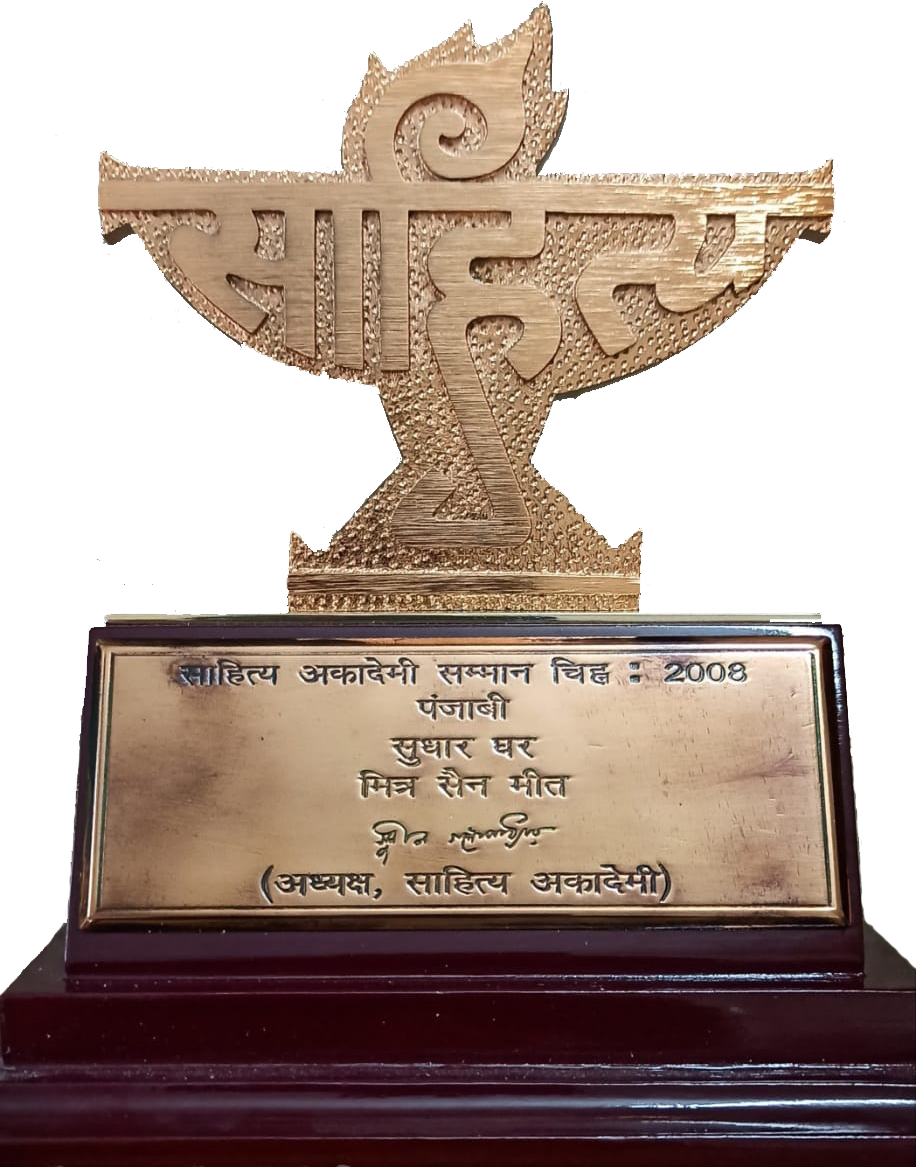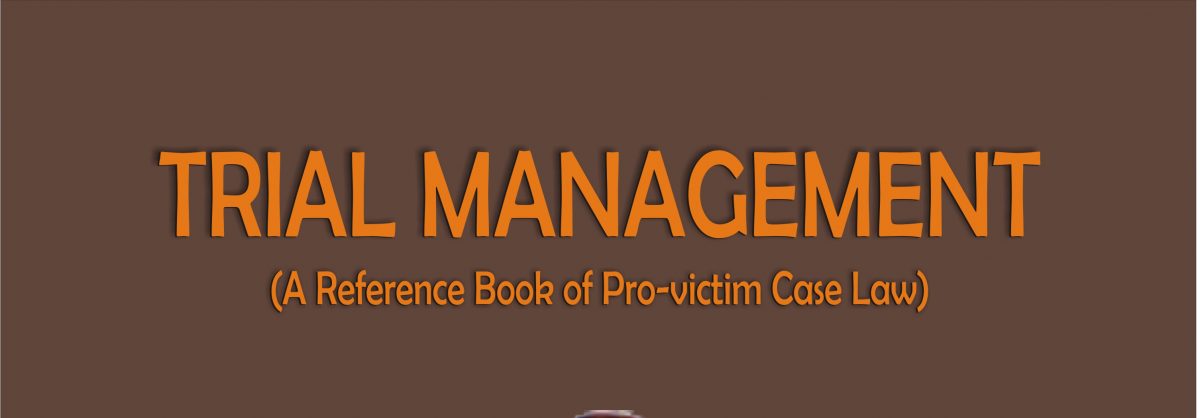ਕਿਸੇ ਵਿਅਕਤੀ ਨੂੰ ਮੁਕੱਦਮੇ ਵਿੱਚ ਦੋਸ਼ੀ ਬਣਾਉਣਾ( Arraigning a person as accused)
(ਧਾਰਾ 319 ਸੀ ਆਰ.ਪੀ.ਸੀ.)
ਪੀੜਤ ਧਿਰ ਵੱਲੋਂ ਨਾਮਜ਼ਦ ਕਈ ਵਿਅਕਤੀਆਂ ਨੂੰ ਪੁਲਿਸ ਦੋਸ਼ੀ ਨਹੀਂ ਮੰਨਦੀ। ਅਜਿਹੇ ਵਿਅਕਤੀਆਂ ਨੂੰ ਬੇਕਸੂਰ ਕਰਾਰ ਦੇ ਕੇ ਉਹਨਾਂ ਦਾ ਨਾਂ ਚਲਾਨ ਦੇ ਕਾਲਮ ਨੰ:2 ਵਿੱਚ ਦਰਜ ਕਰ ਦਿੱਤਾ ਜਾਂਦਾ ਹੈ। ਮੁਕੱਦਮੇ ਦੀ ਸੁਣਵਾਈ ਦੌਰਾਨ ਜੇ ਅਦਾਲਤ ਨੂੰ ਇਹ ਲੱਗੇ ਕਿ ਉਹਨਾਂ ਵਿਅਕਤੀਆਂ ਵਿਰੁੱਧ ਘੱਟੋ-ਘੱਟ ਮੁਕੱਦਮਾ ਚਲਾਉਣ ਜੋਗੇ ਸਬੂਤ ਮੌਜੂਦ ਹਨ ਤਾਂ ਅਦਾਲਤ ਅਜਿਹੇ ਨਿਰਦੋਸ਼ ਕਰਾਰ ਦਿੱਤੇ ਵਿਅਕਤੀਆਂ ਨੂੰ ਤਲਬ ਕਰਕੇ aੁਸਨੂੰ ਮੁਕੱਦਮੇ ਦੀ ਸੁਣਵਾਈ ਵਿੱਚ ਸ਼ਾਮਿਲ ਹੋਣ ਦਾ ਹੁਕਮ ਦੇ ਸਕਦੀ ਹੈ। ਇਸ ਸੁਣਵਾਈ ਦੌਰਾਨ ਪ੍ਰੋਸਪੈਕਟਿਵ ਸੰਭਾਵੀ ਦੋਸ਼ੀ ਨੂੰ ਆਪਣਾ ਪੱਖ ਪੇਸ਼ ਕਰਨ ਦਾ ਅਧਿਕਾਰ ਨਹੀਂ ਹੁੰਦਾ।
1. ਅਜਿਹੇ ਵਿਅਕਤੀ ਨੂੰ, ਜਿਸਦਾ ਨਾਂ ਐਫ.ਆਈ.ਆਰ. ਵਿੱਚ ਦਰਜ ਹੋਵੇ ਪ੍ਰੰਤੂ ਜਿਸਦਾ ਪੁਲਿਸ ਵੱਲੋਂ ਚਲਾਨ ਨਾ ਕੀਤਾ ਗਿਆ ਹੋਵੇ, ਅਦਾਲਤ ਮੁਲਜ਼ਮ ਦੇ ਤੌਰ ਤੇ ਸੰਮਨ ਕਰ ਸਕਦੀ ਹੈ।
Case: Joginder Singh and another v/s State of Punjab and another 1979 Cri.L.J. 333 (1) (SC – FB)
Para “9. ….. The said expression clearly covers any person who is not being tried already by the Court and the very purpose of enacting such a provision like Sec. 319 (1) clearly shows that even persons who have been dropped by the police during investigation but against whom evidence showing their involvement in the offence comes before the Criminal Court are included in the said expression.”
2. ਅਜਿਹੇ ਵਿਅਕਤੀ ਨੂੰ, ਜਿਸਨੂੰ ਅਦਾਲਤ ਪਹਿਲਾਂ ਦੋਸ਼ ਮੁਕਤ (discharge) ਕਰ ਚੁੱਕੀ ਹੋਵੇ, ਮੁਲਜ਼ਮ ਦੇ ਤੌਰ ਤੇ ਸੰਮਨ ਕੀਤਾ ਜਾ ਸਕਦਾ ਹੈ।
Case : Kishun Singh vs. State of Bihar 1993 Cri.L.J. 1700(1) (SC)
Para “11. ….. Even a person who has earlier been discharged would fall within the sweep of the power conferred by S. 319 of the Code.”
3. ਧਾਰਾ 319 ਸੀ.ਆਰ.ਪੀ.ਸੀ. ਦੇ ਪ੍ਰਾਵਧਾਨਾਂ ਦੀ ਵਰਤੋਂ ਮੈਜਿਸਟ੍ਰੇਟ ਅਤੇ ਸੈਸ਼ਨ ਕੋਰਟ ਦੋਵੇਂ ਕਰ ਸਕਦੇ ਹਨ।
Case : Joginder Singh and another v/s State of Punjab and another 1979 Cri.L.J. 333 (1) (SC – FB)
Para “8. ….. once the Sessions Court is properly seized of the case as a result of the committal order against some accused the power under S. 319 (1) can come into play and such Court can add any person, not an accused before it, as an accused and direct him to be tried along with the other accused for the offence which such added accused appears to have committed from the evidence recorded at the trial. Looking at the provision from this angle there would be no question of reading S. 319 (1) subject or subordinate to S. 193.”
4. ਧਾਰਾ 319 ਸੀ.ਆਰ.ਪੀ.ਸੀ. ਵਿੱਚ ਦਰਜ ਸ਼ਬਦ ‘ਗਵਾਹੀ’ (evidence) ਦਾ ਅਰਥ ਵਿਸ਼ਾਲ (broad) ਅਤੇ ਵਿਆਪਕ (comprehensive) ਹੈ।
Case : Rakesh vs. State of Haryana 2001 Cri.L.J. 3511(1) (SC)
Para “13. Word “evidence” occurring in sub-section is used in comprehensive and broad sense which would also include the material collected by the Investigating Officer and the material or evidence which comes before the Court and from which the Court can prima facie conclude that person not arraigned before it is involved in the commission of the crime.”
5. ਅਦਾਲਤ ਨੂੰ ਗਵਾਹੀ ਦਰਜ ਕਰਨ ਤੋਂ ਪਹਿਲਾਂ ਵੀ ਕਿਸੇ ਵਿਅਕਤੀ ਨੂੰ ਬਤੌਰ ਮੁਲਜ਼ਮ ਸੰਮਨ ਕਰਨ ਦਾ ਅਧਿਕਾਰ ਹੈ। ਮੈਜਿਸਟ੍ਰੇਟ ਨੂੰ ਇਹ ਅਧਿਕਾਰ ਧਾਰਾ 190 ਅਤੇ ਸੈਸ਼ਨ ਕੋਰਟ ਨੂੰ ਧਾਰਾ 193 ਰਾਹੀਂ ਪ੍ਰਾਪਤ ਹੈ।
Case (i) : Kishun Singh vs. State of Bihar 1993 Cri.L.J. 1700(1) (SC)
Para “16. ….. Once the Magistrate committing the case under S. 209 to the Court of Session the bar of S. 193 is lifted thereby investing the Court of Session complete and unfettered jurisdiction of the Court of original jurisdiction to take cognizance of the offence which would include the summoning of the person or persons whose complicity in the commission of the crime can prima facie be gathered from the material available on record…”
It was further observed:-
17… since the Court of Session had the power under S. 193 of the Code to summon the appellants as their involvement in the commission of the crime prima facie appeared from the record of the case, we see no reason to interfere with the impugned order as it is well-settled that once it is found that the power exists the exercise of power under a wrong provision will not render the order illegal or invalid. We, therefore, dismiss this appeal.”
Case (ii) : Radheyshyam Vs. State of M.P., 1996 Cri.L.J. 1491(M.P. – HC)
Para “6. Now the law is clear as laid down in two cases by the Apex Court, as referred above, that Section 193 includes inherently the power of Sessions Judge to call upon a person to face the trial, who is left over by the investigating agency and the committing Magistrate even before the trial has commenced.”
Case (iii) : Davinder Kaur Vs. State of Punjab 2002 Cri.L.J.4256 (PH-HC)
Para “12. ….. there was sufficient material before the Additional Chief Judicial Magistrate to summon the petitioner-accused on the basis of the police statements of the witnesses recorded during the course of investigation. Nomenclature of the application filed under S. 319 of the Code would have no bearing because the orders referred to above clearly indicate that it is after taking cognizance of the case the impugned order dated 6-4-1999 has been passed by the Additional Chief Judicial Magistrate, Kapurthala which has been affirmed by the Additional Sessions Judge.”
6. ਮੁਕੱਦਮੇ ਦੀ ਨਵੇਂ ਸਿਰਿਓਂ (de novo trial) ਸ਼ੁਰੂ ਕੀਤੀ ਸੁਣਵਾਈ ਦੌਰਾਨ ਪਹਿਲੀ ਸੁਣਵਾਈ ਵਿੱਚ ਭੁਗਤੇ ਸਾਰੇ ਗਵਾਹਾਂ ਨੂੰ ਦੁਬਾਰਾ ਗਵਾਹੀ ਲਈ ਬੁਲਾਉਣਾ ਜ਼ਰੂਰੀ ਨਹੀਂ ਹੈ।
Case : Kishun Singh Vs. State of Bihar 1993 Cri.L.J. 1700(1) (SC)
Para “11. I have already held that it is not necessary to examine all the witnesses mechanically after impleadment of newly added accused. The object of the section is to give opportunity to the newly added accused to meet the incriminating material against him. It is futile to order re-examination of the witnesses who did not say anything against the newly added accused. It is true that the right of cross-examination is a valuable right, however, slender it may be as was held in the above case. Still, such an opportunity cannot be mechanical.”
7. Committing Magistrate ਨੂੰ ਕਿਸੇ ਵਿਅਕਤੀ ਨੂੰ ਦੋਸ਼ੀ ਦੇ ਤੌਰ ਤੇ ਸੰਮਨ ਕਰਨ ਦਾ ਅਧਿਕਾਰ ਨਹੀਂ ਹੈ।
Case : Raj Kishore Prasad vs. State of Bihar, 1996 Cri.L.J. 2523(1) (SC)
Para “11. ….. Therefore, it would be legitimate for us to conclude that the Magistrate at the state of Section 209, Cr. P. C. is forbidden to apply his mind to the merit of the matter and determine as to whether any accused need be added or subtracted to face trial before the Court of Session.”
8. ਮੁੱਖ ਮੁਕੱਦਮੇ ਦੇ ਫੈਸਲੇ ਦੇ ਬਾਅਦ ਵੀ ਧਾਰਾ 319 ਸੀ.ਆਰ.ਪੀ.ਸੀ. ਅਧੀਨ ਬੁਲਾਏ ਦੋਸ਼ੀ ਉੱਪਰ ਮੁਕੱਦਮਾ ਚਲਾਇਆ ਜਾ ਸਕਦਾ ਹੈ।
Case : Shashikant Singh vs. Tarkeshwar Singh 2002 Cri.L.J. 2806 (SC)
Para “10. ….. The words ‘could be tried together with the accused’ in Section 319(1), appear to be only directory. ‘Could be’ cannot under these circumstances be held to be ‘must be’. The provision cannot be interpreted to mean that since the trial in respect of a person who was before the court has concluded with the result that the newly added person cannot be tried together with the accused who was before the Court when order under Section 319(1) was passed, the order would become ineffective and inoperative, nullifying the opinion earlier formed by the Court on the basis of evidence before it that the newly added person appears to have committed the offence resulting in an order for his being brought before the Court.”
9. ਧਾਰਾ 319 ਸੀ.ਆਰ.ਪੀ.ਸੀ. ਅਧੀਨ ਹੋ ਰਹੀ ਸੁਣਵਾਈ, ਧਾਰਾ 200 ਸੀ.ਆਰ.ਪੀ.ਸੀ. ਹੋ ਰਹੀ ਪੜਤਾਲ ਦੇ ਵਾਂਗ ਹੈ। ਸੰਭਾਵੀ ਦੋਸ਼ੀ ਨੂੰ ਸੁਣਵਾਈ ਵਿੱਚ ਸ਼ਾਮਿਲ ਹੋਣ ਦਾ ਅਧਿਕਾਰ ਨਹੀਂ ਹੈ।
Case : Rakesh vs. State of Haryana 2001 Cri.L.J. 3511(1) (SC)
Para “13. Section does not contemplate an additional stage of first summoning the person and giving him an opportunity of cross-examining the witness who has deposed against him and thereafter deciding whether such person is to be added as accused or not..”
10. ਜੇ ਕਿਸੇ ਮੁਕੱਦਮੇ ਵਿੱਚ ਲੱਗੇ ਜ਼ੁਰਮ ਅਜਿਹੇ ਹੋਣ ਜਿਹਨਾਂ ਦੀ ਸੁਣਵਾਈ ਕੇਵਲ ਸੈਸ਼ਨ ਕੋਰਟ ਕਰ ਸਕਦੀ ਹੋਵੇ ਅਤੇ ਅਜਿਹੇ ਕੇਸ ਵਿੱਚ ਕਿਸੇ ਵਿਅਕਤੀ ਦਾ ਨਾਂ ਐਫ.ਆਈ.ਆਰ. ਵਿੱਚ ਬਤੌਰ ਦੋਸ਼ੀ ਦਰਜ ਹੋਣ ਦੇ ਬਾਵਜੂਦ ਵੀ ਪੁਲਿਸ ਵੱਲੋਂ ਉਸਦਾ ਚਲਾਨ ਨਾ ਕੀਤਾ ਗਿਆ ਹੋਵੇ ਤਾਂ ਮੈਜਿਸਟ੍ਰੇਟ ਇਸਤਗਾਸਾ (private complaint) ਦੇ ਅਧਾਰ ਤੇ ਅਜਿਹੇ ਵਿਅਕਤੀ ਨੂੰ ਬਤੌਰ ਮੁਲਜ਼ਮ ਸੰਮਨ ਨਹੀਂ ਕਰ ਸਕਦਾ। ਇਹ ਅਧਿਕਾਰ ਧਾਰਾ 319 ਸੀ.ਆਰ.ਪੀ.ਸੀ. ਅਧੀਨ ਕੇਵਲ ਸੈਸ਼ਨ ਕੋਰਟ ਨੂੰ ਪ੍ਰਾਪਤ ਹੈ।
Case : Jile Singh v/s State of U.P. 2012 RCR (Criminal) 583 (SC)
Para “9. In the present case, if the order passed by the Chief Judicial Magistrate, Mathura, in issuing summons against the appellant on the complaint filed by the respondent No. 2-complainant, which has been confirmed by the High Court, is allowed to stand, it would mean addition of the appellant to the array of the accused in a pending case before the Sessions Judge at a stage prior to collecting any evidence by that court. This course is absolutely impermissible in view of the law laid down by a three Judge Bench of this court in the case of Ranjit Singh (supra). The stage of Section 209 of the Code having reached in the case, it was not open to the Chief Judicial Magistrate, Mathura to exercise the power under Section 204(1)(b) of the Code and issue summons to the appellant. The order of the Chief Judicial Magistrate, Mathura is totally without jurisdiction. The High Court was clearly in error in not keeping in view the law laid by this Court in the case of Ranjit Singh (supra) followed by a subsequent decision in the case of Kishori Singh (supra) and in upholding the illegal order of the Chief Judicial Magistrate, Mathura.”







More Stories
ਮੁਕੱਦਮਿਆਂ ਦੀ ਸੁਣਵਾਈ(Trial of cases)
ਧਾਰਾ 195 ਦੀ ਮਨਾਹੀ (Prohibition of Section 195)
ਦੋਸ਼ ਪੱਤਰ(Framing of charges)